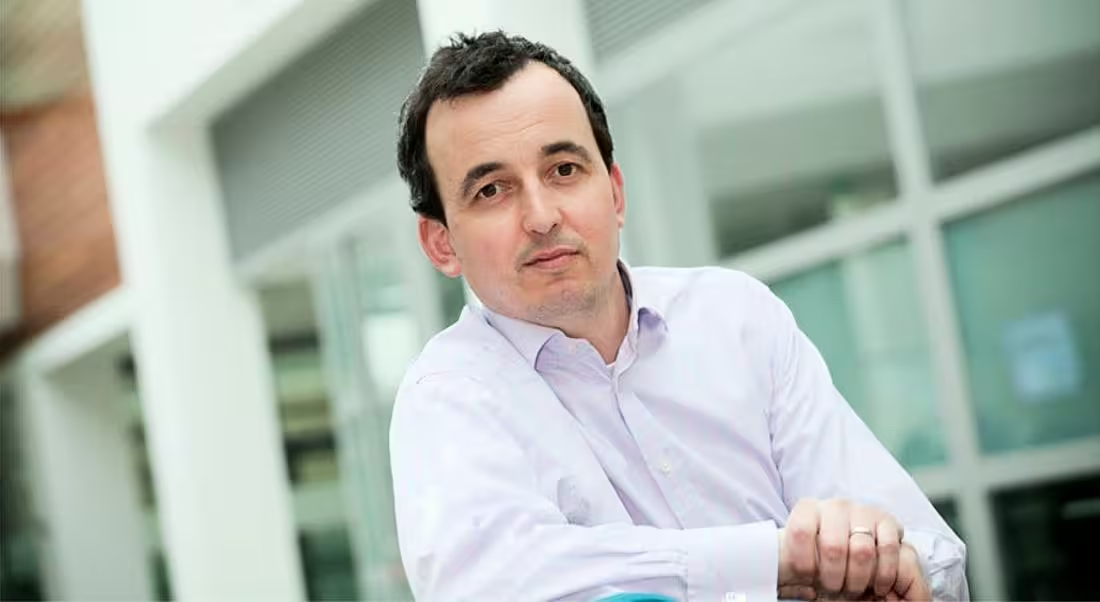New technologies and advancements are creating fundamental changes in how we work. These changes are particularly palpable in the biopharma sector.
It would not be a giant leap to say that, 10 years from now, the workplace and workforce will look very different. That change will span industries and sectors, and will very much affect the way we do work.
Here, Killian O’Driscoll, director of projects at the National Institute for Bioprocessing Research and Training (NIBRT), gives us some insight into the future of work within the biopharma sector.
What challenges and opportunities face the workplace and workforce of the future?
The biopharma industry is seeing a period of robust growth, with the number of new jobs in Ireland predicted to grow by 8,400 before 2020.
This growth is replicated internationally and, as a consequence, there is a global shortage of skilled biopharma professionals. Bioprocess engineers, commissioning staff, automation engineers and downstream processing expertise are in particularly high demand.
A key challenge for the biopharma industry, therefore, is to ensure that there is a sufficient pool of talent attracted to the sector to support the anticipated growth.
What key trends do you foresee in relation to intra-team behaviour, management-employee interactions or other workplace dynamics?
Much of the work done in biopharma is project-driven, with a significant emphasis on genuine collaboration, effective team work across all levels and effective communications. These skills are seen as core competencies and will be sought after by hiring managers.
How will the workplace change as the Baby Boomers and Generation X age out of the workforce, and it becomes millennial-driven?
Are the differences between the generations overstated? Biopharma is driven by people with a passion to cure unmet medical needs using cutting-edge science and technology, and this is consistent across all generations.
What part will diversity and inclusion play in the make-up of the workforce of the future?
The biological sciences are fortunate to have a good gender balance, although this can be harder to achieve within some engineering disciplines. The reasons are well documented and persistent, although many worthwhile initiatives are ongoing to highlight the opportunities for all in STEM-based careers.
We’re also beginning to see a welcome increase in the number of highly trained and motivated non-nationals looking to Ireland for careers in biopharma.
Work-life balance is arguably central to job satisfaction. How can it be better achieved?
Most companies in the sector have a defined culture and values with a focus on providing excellent, balanced career opportunities for staff. Those who don’t have such a culture in place risk an increase in staff turnover in a highly competitive marketplace.
We’ve seen immense increases in salary, particularly in tech. Do you think salaries in your sector will trend upwards, or will we start to see other benefits coming to the fore?
Salary rates in biopharma tend to be competitive without being excessive. Employees are well rewarded with attractive benefit packages from pension, healthcare, social clubs etc.
A key motivating factor is also the inherent nature of the work, developing and delivering therapies for patients. It’s been described as ‘careers with purpose’.
We’re currently deep in the world of data. What part will data play in developing the future of work?
Data analytics is a core function in biopharma and will be of increased significance in coming years. Data analysis underpins our fundamental scientific understanding of the biological process, including everything from genomic analysis to protein characterisation. The use of data analytics in the optimisation of the manufacturing process and the overall supply chain is an area that has very significant potential.
We’re looking at a more automated future, as AI and bots become more sophisticated. How do you think this will affect roles in your sector?
This is an area where we’re beginning to see some really interesting concepts. As Manufacturing 4.0 gathers momentum, we’re seeing prototypes of the ‘connected biopharma worker’ and ‘facility of the future’ – involving technologies such as augmented reality, robotics, real-time sensors, internet of things etc – which will drive advances in the sector.
What are the sectors of the future? Where do you believe we will we be seeing job growth and development?
The biopharma industry is still relatively young, having its roots in the biotech start-ups in Boston and the Bay Area in the mid-1980s. Today, six of the top 10 highest-selling drug products are biotech products, but, in reality, the industry is only getting started.
We’re seeing advances across the biological sciences increasing the variety of biotech products coming through clinical trial, including bispecific antibodies, cell therapies, gene therapies and an evolution towards precision medicine.
This provides incredibly exciting career opportunities for talented scientists and engineers. To quote Steve Jobs: “I think the biggest innovations of the 21st century will be at the intersection of biology and technology. A new era is beginning.”
What will companies need to do to attract and support the best talent?
Paradoxically, despite the opportunities in biopharma, the industry has a relatively low public profile in Ireland. The first challenge industry needs to address is effectively telling its story of careers with purpose. The second challenge is to maintain its level of ambition. The ultimate objective is that Ireland would be a genuine biotech hub to rival locations such as Boston, with a thriving start-up, indigenous and FDI cluster.
How do companies need to change right now to be ready for the future of work you have envisioned here?
Right now, biopharma companies need to tell their story and ensure the talent of the future is aware of these careers with purpose, bringing life-changing biotech products to patients.
Killian O’Driscoll is the director of projects at NIBRT. O’Driscoll is a genetics graduate of Trinity College Dublin, and holds an MSc in the management of innovation from the University of London. He is also an associate lecturer in project management at Dublin Business School.




